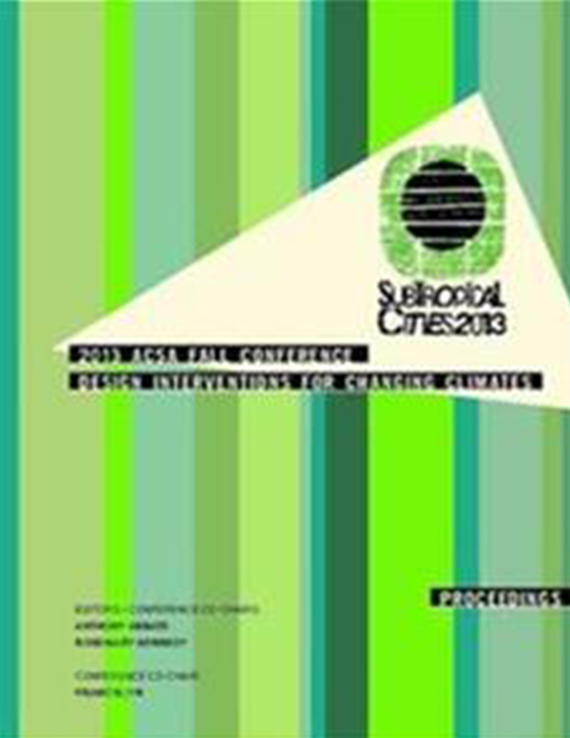Author(s): Adam Bobbette, Etienne Turpin & Meredith Miller
The Architecture + Adaptation: Design for Hypercomplexity Research Initiative brings together students and faculty from multiple institutions to address the environmental challenges of anthropogenic climate change and its attendant social effects, through inter-cultural exchange and transdisciplinary design research. In June of 2013, the INUNDATION 2 studio directed by Assistant Professor Meredith Miller and Etienne Turpin will place students from the Taubman College of Architecture and Urban Planning and the School of Engineering at the University of Michigan into a unique design collaboration with landscape architecture students from Hong Kong University and architecture and urban design students from Universitas Indonesias. Through a three-week workshop in Jakarta, this interdisciplinary group will build on research conducted during last year’s initial collaboration, which applied situated observation, collaborative analysis, and extensive design research to study 6 neighborhoods in Jakarta. Chosen by the faculty for their proximity to the World Bank’s Jakarta Urgent Flood Mitigation Project, these six sites were each representative of broader issues related to coastal inundation, river flooding, tidal flooding, access to potable water, storm water drainage, industrial expansion. This year’s workshop will similarly emphasize the localized, synthetic interactions of built form, social patterns, and natural systems to understand how the politics of water at the city scale have social and spatial consequence in a particular community. As a new development, our research will be directed in part via a client-designer relationship our group has formed with a community-based advocacy group. The Urban Poor Consortium has asked our design research to propose alternative strategies to the city’s recent plan to clear a slum neighborhood around the Waduk Pluit (a key reservoir in the water management and flood mitigation system in Jakarta, and a site of analysis in the previous workshop). The presentation at the fall ACSA conference would share the results of this collaboration, elaborating on the pedagogical innovations of our site-based research practices, including hybrid and experimental modes of inquiry, speculation, and advocacy. Secondly, the paper will define Hypercomplexity, an irreversible condition that we understand as the compound instability brought about by climate change, human migration, failing infrastructure, population concentration, and extreme pollution, among other factors. Positioning design research relative to this condition of hypercomplexity, the interdisciplinary pedagogy of the workshop underscores two urgent objectives: (1) to analyze the circumstances of impending human and environmental disaster that result from anthropogenic climate change and attendant inundation effects concentrated in Southeast Asian coastal megacities; (2) to render this condition explicit and spatially specific to the site and community around the Waduk Pluit reservoir in Jakarta. Within this context, we will argue for the importance to apprehend emergent forms of hypercomplexity as a necessary precondition for architecture to have agency within megacities and among the accelerating effects of global climate change.
Volume Editors
Anthony Abbate, Francis Lyn & Rosemary Kennedy
ISBN
978-0-935502-90-9

 Study Architecture
Study Architecture  ProPEL
ProPEL 
